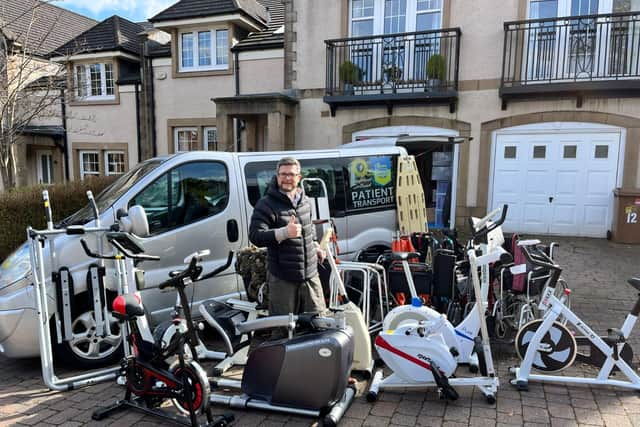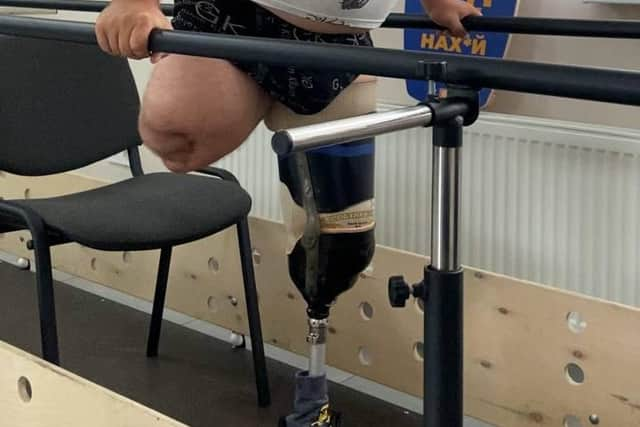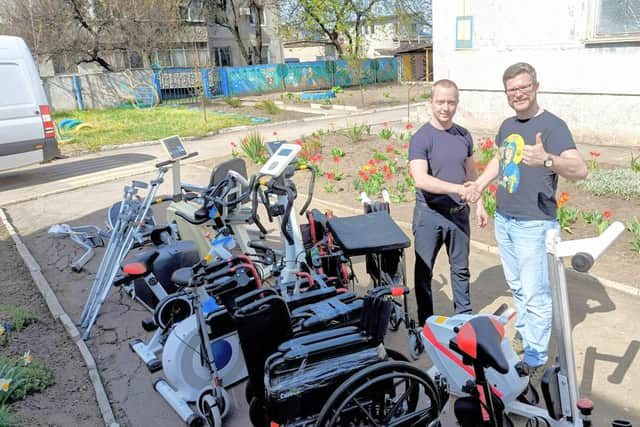War in Ukraine: The Scottish charity helping war veterans in mining town where one in 30 people have lost limb
In the Ukrainian mining town of Pershotravensk, 25 miles from the Donbas front, there are more than 1,000 people who have recently become amputees or are recovering from another life-changing injury. It is around one in 30 of the population.
Before the war, the town had seven working coal mines, employing more than 2,000 people. When they all closed down, workers lost their jobs and many joined the army, creating a proportionally large number of war veterans, who, two years into the conflict, are beginning to return home.
Advertisement
Hide AdAdvertisement
Hide AdNow, local health services are struggling to cope with the huge scale of rehabilitation necessary for the injured former soldiers, with little state provision in place to help them adapt to their new lives.


"While those in big cities – Kyiv, Dnipro, Kharkiv – receive medical support, those in small towns and villages are left behind,” said Oleg Dmitriev, director of Scottish charity Sunflower Scotland, which has stepped in to help create a rehabilitation centre in the community.
"There are simply no hospitals there and no rehabs that can accommodate all. The scale of the tragedy is gigantic. Nobody ever planned for this and amputees remain in their homes, out of sight, without medical or psychological support.”
Mr Dmitriev said he believed the numbers of soldiers injured in Ukraine were far higher than official estimates. An August report by the New York Times, citing anonymous US officials, put the Ukrainian death toll at close to 70,000 and the number of wounded as high as 120,000. In February, Ukrainian president Volodymyr Zelensky said 31,000 troops had been killed since the invasion began two years earlier – but refused to give a number of those injured, saying doing so would help Russia to plan its attacks.


"I think the numbers are absolutely gigantic,” Mr Dmitriev said. “We can’t even start to imagine. It is like a tsunami, it’s a massive disproportion of society.”
Having visited the town in the first year of the war to deliver aid, Mr Dmitriev was contacted by local authorities there asking for help in kitting out the centre.
Earlier this month, he drove eight machines, including exercise bikes, cross trainers and a rowing machine, from Edinburgh to Pershotravensk. Now he wants to fundraise to provide ten more machines.
“Ukraine was not prepared for this [supporting injured soldiers],” said Mr Dmitriev, whose charity last week agreed to become a patron charity of the centre. The facility is a subsidiary of an existing rehabilitation centre, “Path to Health”, in Dnipro, which has helped over 600 amputees since its launch in 2022.


Advertisement
Hide AdAdvertisement
Hide Ad"There aren’t really ramps and wheelchairs, basic things which people with these injuries need,” he said. “That means amputees are basically hiding in their apartments and are reliant on relatives to look after them. They need support, not just rehabilitation, but mental health support and being able to meet and speak to other people in the same situation at the rehab centre is really important.”
Mr Dmitriev added: “When people are in this situation and are isolated, they spiral. I think there will be a wave of suicides, unfortunately.”
Sunflower Scotland is receiving donations at www.sunflowerscotland.co.uk/donate-to-support-ukraine/.
Comments
Want to join the conversation? Please or to comment on this article.
